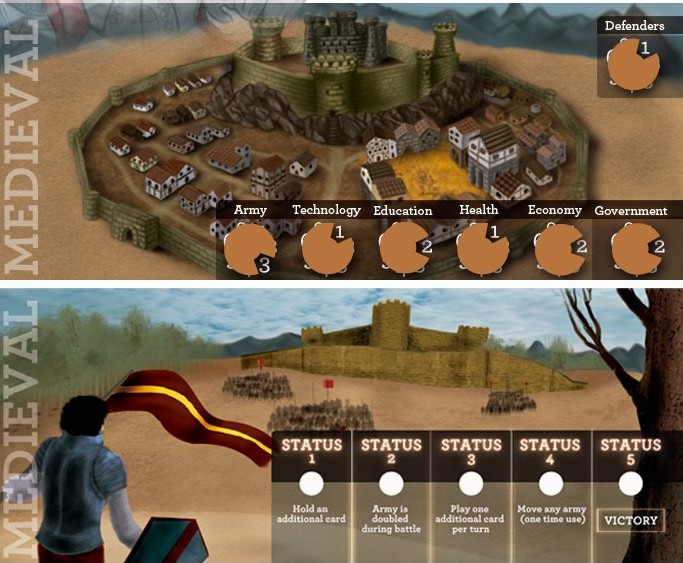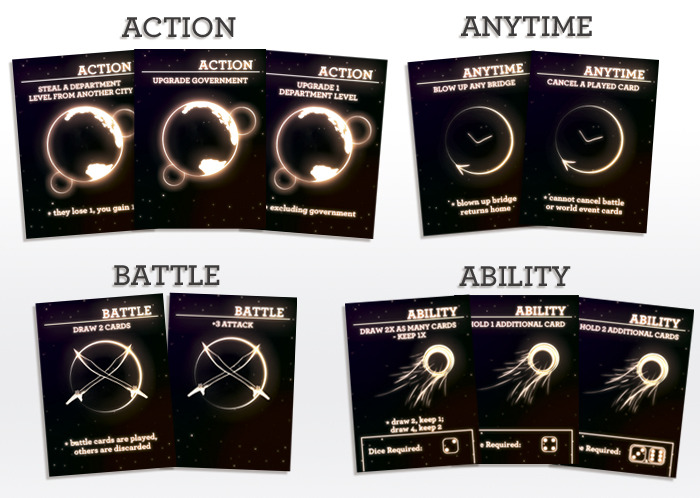Since time immemorial, dreamers, philosophers, conquerors, and scholars have remarked on one of humanity’s fundamental traits: our drive to explore. Whether it’s the depths of the oceans, the cosmos beyond, or the inner workings of our own minds, the human drive to seek out the unknown is ever-present. It’s not always peaceful, and it’s hardly ever easy, but it’s such a powerful force to us that it’s hard to imagine a time when that won’t be true.
In Civility, apparently, that day happens. Far, far into the future, humanity has foregone expanding into space, instead focusing on perfecting our world. On the surface it sounds like a grand idea. However, that’s from humanity’s perspective.
For you see, proving that all-powerful immortal beings just get bored easily, the Creators decide that if this version of humankind’s progress won’t take up the flags and branch out into space, watching us live in harmony for eternity is going to be pretty dull. So, they rip apart the timeline, opening portals to various possible points in civilization. Then they sit back and watch those different eras duke it out for supremacy the future.
Er, past…
Everything.
Frigging gods…
Civility, just like its concept, is a mash-up of several different game mechanics. Utilizing bits of dice allocation, card playing, and good old fashioned combat, players compete to advance as fast as they can – at the expense of one another. Each player has control over a different period of humanity, referred to as a City. Each City has a series of starting statistics that correspond to the seven different facets of civilization: Army, Defense, Technology, Education, Health, Economy, and Government. These values range between zero and six, depicting your overall strength in that category over time. Each City varies in capabilities, which add to the variety and replay value of the game. For example, this is the starting Medieval City:
Dance Puppets, Dance!
As if ripping apart the space-time continuum wasn’t bad enough, these Creators (being the jerks they are), set out objectives that players need to fulfill. Achieving the objective on the board allows your civilization to Level Up to a new stage of development, awarding new and unique abilities. Once one objective is claimed, another one takes its place, and the race begins anew. Succeed at doing this five times and you win. Usually this is at the cost of winning battles or raising and sacrificing ranks in your various City categories.
Make no mistake, just because the word ‘civil’ exists in the title, doesn’t mean the game is for the benign. While it is possible to be a pacifist for the course of the game, that’s not the normal course of action. Between the actions on the board and the percentage of combat-based cards you receive, it’s evident this is about a slugging it out other timelines. Only one civilization can prove the victor, and as a testament to our nature, it’s usually at the end of a pointy stick.
We tried Civility initially from a more passive, civ-building mindset, but not only did we find out that caused the game to drag on time-wise because of it, but it also severely limits your options on what you can do. It actually took much of the fun out of the game. Subsequent attempts fared better when played to what the game was clearly wanted us to do. So, when in Rome, grab that pointy stick and find a weaker tribe. (A Classical-era City, coincidentally, is not one of your possible options.)
Winning battles is one of the best ways to increase your City values. Yet, it should be noticed that Civility isn’t just a hack-and-slash boxing match either; combat takes a bit of setup to do though without cards that allow for shortcuts.
Normally it requires you an action to open a “bridge” (read: portal) to another player’s area, one to move your army there, and one to actually attack. Only then does combat ensue. If just left up to your one action a turn, it could take awhile, so use those cards wisely.
In the end, what makes Civility noteworthy is its esoteric concept. It attempts to answer that quandary of what Napoleon would do against a tank….by throwing a dwarf, a ray gun, and a well-aimed rock into the equation. Since your singular action each round is based on the randomness of the dice roll and which cards you draw, the game’s outcome can be pretty random without being flexible in your planning. Still, it has an imaginative concept that for many would be worth exploring. Civility wants you to hone your skills and aim for the stars in this unconventional game. If this sounds like an adventure you’d be interested in, check out their Kickstarter!


